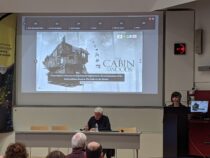
When Bosnia and Herzegovina adopted the Animal Protection and Welfare Law 16 years ago, it seemed our country was finally moving in the right direction, evolving toward a more modern and compassionate society. A society with the pillars of spiritual progress firmly set, one that punishes the infliction of suffering on other beings. “This is the next step, and we are ready to take it,” seemed to echo through the halls of government and in the hearts of those who never allowed the empathy inherent to humanity to be hardened into cruelty.
A quarter of the 21st century has already passed, and Bosnian-Herzegovinian society is far from any real progress — especially the kind not measured by kilometers of highway laid or hospitals newly built. Amid the mire of barbarism, a few sparks of awareness ripple — faint realizations that we must work on our own souls. Sadly, standing up and raising one’s voice against injustice has become more of an anomaly than a democratic duty, while apathy reigns over our cities like a king made of gauze.
How else can we characterize a society in which, among countless disheartening examples, animal cruelty is considered entertainment? The so-called “štraparijada”—events in which horses are subjected to suffering for the sake of “folk amusement” — are nothing more than parades of base instincts and the abuse of innocent beings, whose only “fault” is their gentle nature and spirits broken by human arrogance. The Animal Protection and Welfare Law explicitly prohibits forcing animals into behaviors that cause them pain, suffering, injury, or fear. Claiming that horses want to pull two-ton logs because, God forbid, they are “bored” is akin to the misogynistic cry of “she asked for it” after yet another femicide. Both are symptoms of a warped society that shares more in common with the mob mentality than with a civilized community.
Do we even need a law — which, by the way, state institutions themselves don’t respect (since these events regularly receive permits) — when deep down, we know it’s wrong to cause pain and suffering to others? If for no other reason, then because of the principle: “Do not do unto others what you wouldn’t want done to you.” Couldn’t “tradition” and “folk customs” be preserved through a Bosnian version of the Highland Games held in Scotland, where people themselves compete in feats of strength like tossing logs, throwing hammers, or tug-of-war? Wouldn’t that represent real strength — of both body and spirit — rather than thumping your chest with muscles that aren’t even your own? Truly, envy walks hand in hand with evil, so it’s no surprise that those willing to torture innocent beings for pleasure suffer from complexes that not even Freud or Jung could cure.
Amid all this, one paradox stands out: the sudden concern for the same animals when they are abused in nearly identical situations — only differing from štraparijada by the fact that they’re not organized or promoted in the media. For example, today (April 14), one of the leading news portals in BiH published a disturbing video of two men beating a horse in Prijedor. The police and prosecutor’s office rightly got involved, and the perpetrators have already been identified. So I rightfully ask: Why is one case of horse abuse treated as a punishable offense, while others (like štraparijada) are permitted and even presented as valuable pillars of Bosnian tourism? Are we so hypocritical that we deliberately ignore evil when there’s economic gain to be had — let alone the satisfaction of indulging our most primitive urges?
Mahatma Gandhi once said, “The greatness and moral progress of a nation can be judged by the way its animals are treated,” perhaps seeking to rephrase Alexander von Humboldt’s thought that cruelty to animals is “one of the most characteristic vices of a base and ignoble people.” Milan Kundera expanded on this and revealed a painful truth about ourselves: “The true moral test of humanity, the one most fundamental, lies in its attitude toward those who are at its mercy: animals. And in this respect, humankind has suffered a complete defeat, a defeat so fundamental that all other defeats stem from it.”
Until our society confronts the apathy and cruelty it inflicts on these noble creatures — and all other beings we share this part of the Earth with — it will remain utterly defeated in every aspect of true ethical existence and social development. In the muck of barbarism, apathy and brutality multiply like cancer cells in the soul of our being. As long as we watch and cheer on the suffering of animals, as long as we turn our heads in feigned ignorance, we do not deserve the mercy of recovery.







































































